About TWC

Admission
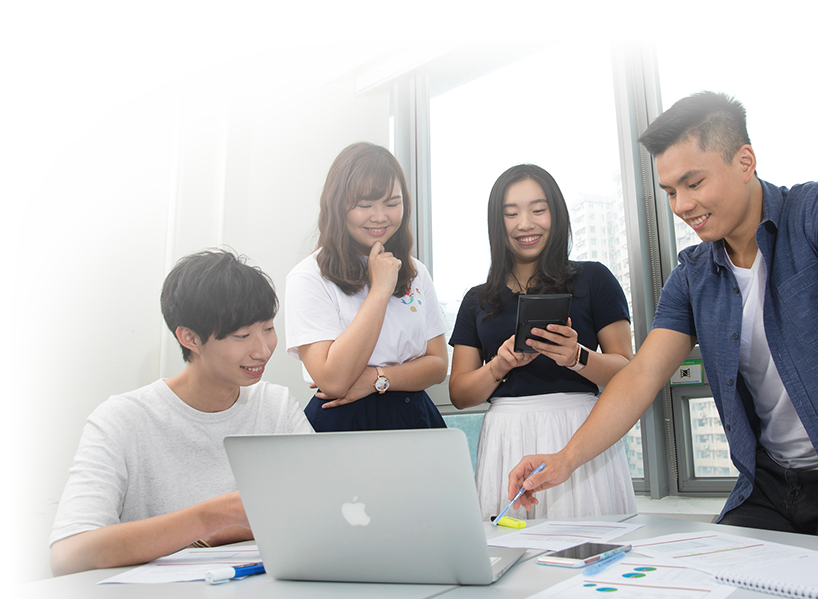
Programmes
-
Bachelor’s Degree Programmes
-
Sub Degree ProgrammesDiploma ProgrammeCertificate Programme
-
Mainland Admission
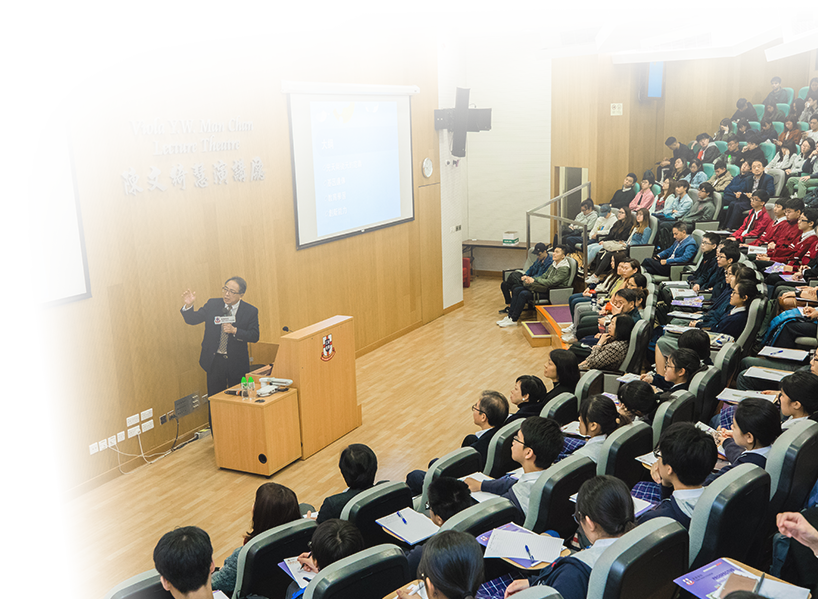
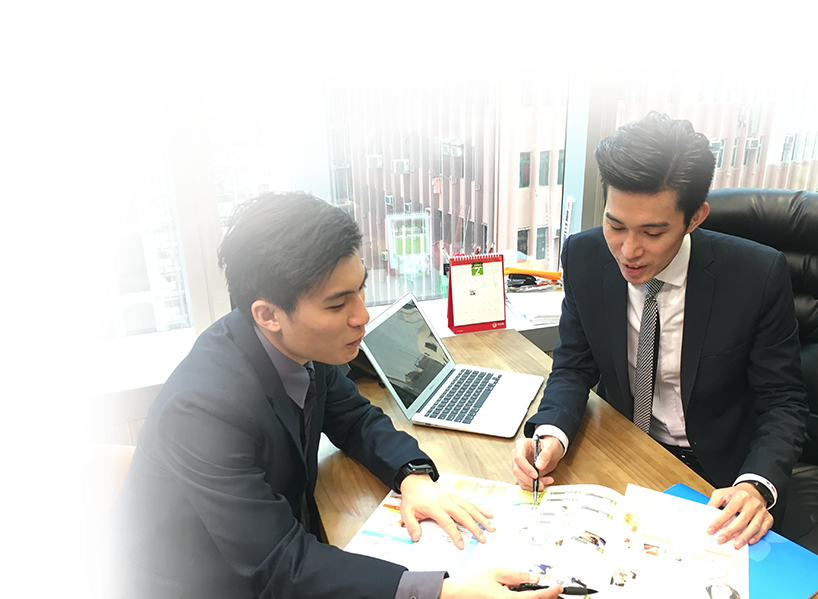 Administration Units
Administration Units
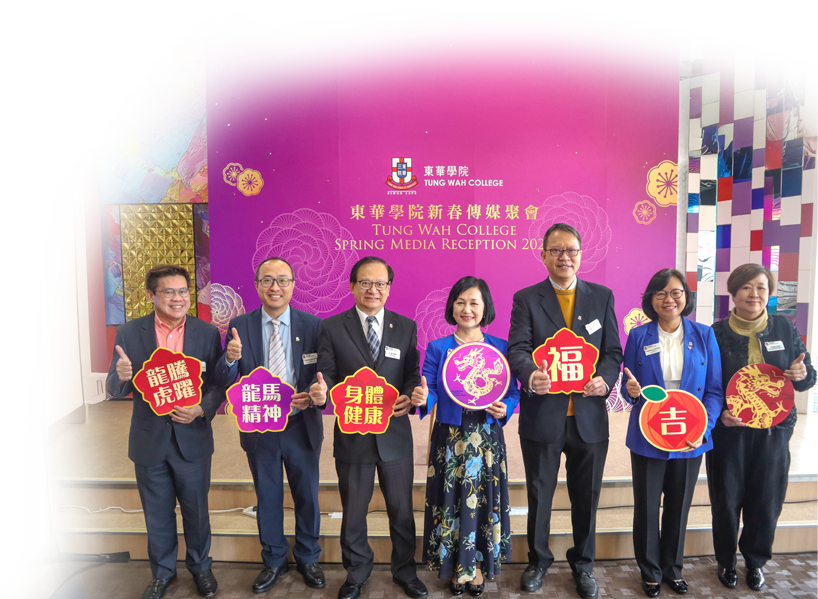 News & EventsGE Framework and ObjectivesThe GE FrameworkThe GE curriculum of TWC divides knowledge for holistic development in two dimensions of enquiry: (1) understanding oneself, the society and the community, and (2) reflecting from the past, exploring for the future. These two dimensions are conceptualised in Figure 1. The first dimension spans from understanding oneself, with the acquisition of thinking, communication, intra-personal and inter-personal skills, to the understanding about human-society relationships, civic and moral values, eastern and western culture and the world. The second dimension is related to the appreciation of literature and arts, and the studies of science and technology in different eras, for students to appreciate the emergence of arts, sciences and technologies, to reflect from the past, and to stimulate their curiosity, creativity and innovation for the future.
News & EventsGE Framework and ObjectivesThe GE FrameworkThe GE curriculum of TWC divides knowledge for holistic development in two dimensions of enquiry: (1) understanding oneself, the society and the community, and (2) reflecting from the past, exploring for the future. These two dimensions are conceptualised in Figure 1. The first dimension spans from understanding oneself, with the acquisition of thinking, communication, intra-personal and inter-personal skills, to the understanding about human-society relationships, civic and moral values, eastern and western culture and the world. The second dimension is related to the appreciation of literature and arts, and the studies of science and technology in different eras, for students to appreciate the emergence of arts, sciences and technologies, to reflect from the past, and to stimulate their curiosity, creativity and innovation for the future.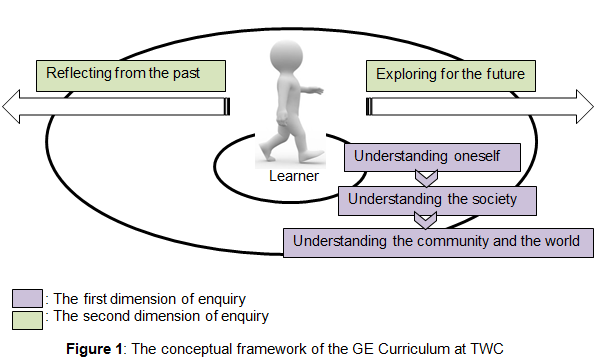 To realise such concept, the GE curriculum divides GE courses into four knowledge areas: (1) Self and Interpersonal Development, (2) Civic, Moral Values and Culture, (3) Arts and Humanities, and (4) Science and Technology. Knowledge areas (1) and (2) answer the first dimension of enquiry for students to understand themselves, the society and the community, whereas knowledge areas (3) and (4) focus on the second dimension to build students’ literacy in arts, science and technology to reflect from the past and explore for the future.The GE ObjectivesThe General Education (GE) Curriculum aims to provide a holistic education to students and prepare them with the competencies demanded in the twenty-first century. Based on the GE conceptual framework with two dimensions of enquiry, the GE Curriculum is developed with the following four objectives: (1) to nurture students to become an active, caring and socially responsible citizen, (2) to cultivate them to be open-minded and with multicultural and global perspectives, (3) to develop students’ cultural awareness and aesthetic literacy, and (4) to equip students with science and information literacy, critical thinking, creative thinking and communication skills, which are essential for our graduates to face the future challenges in the new technological era.In the whole GE curriculum, GE courses are categorised according to the following four knowledge areas:
To realise such concept, the GE curriculum divides GE courses into four knowledge areas: (1) Self and Interpersonal Development, (2) Civic, Moral Values and Culture, (3) Arts and Humanities, and (4) Science and Technology. Knowledge areas (1) and (2) answer the first dimension of enquiry for students to understand themselves, the society and the community, whereas knowledge areas (3) and (4) focus on the second dimension to build students’ literacy in arts, science and technology to reflect from the past and explore for the future.The GE ObjectivesThe General Education (GE) Curriculum aims to provide a holistic education to students and prepare them with the competencies demanded in the twenty-first century. Based on the GE conceptual framework with two dimensions of enquiry, the GE Curriculum is developed with the following four objectives: (1) to nurture students to become an active, caring and socially responsible citizen, (2) to cultivate them to be open-minded and with multicultural and global perspectives, (3) to develop students’ cultural awareness and aesthetic literacy, and (4) to equip students with science and information literacy, critical thinking, creative thinking and communication skills, which are essential for our graduates to face the future challenges in the new technological era.In the whole GE curriculum, GE courses are categorised according to the following four knowledge areas:- Self and Interpersonal Development: To engage students in understanding oneself, develop their critical and creative thinking skills for problem solving, and nurture them with effective strategies to communicate with others;
-
Civic, Moral Values and Culture: To broaden students’ horizon with immersion to global cultures, develop students’ ethical mind and law-abiding awareness, build students’ sense of belonging to the country, and furnish them with the ways to be an active member and a responsible citizen in the community;
-
Arts and Humanities: To inspire students’ with understanding about the connection between human and the society, and enrich students aesthetic literacy through the appreciation of films, art and literature;
-
Science and Technology: To equip students with scientific, information and technological literacy and encourage them to explore and be innovative in the rapidly-changing environment.
GE Framework and Objectives
-














